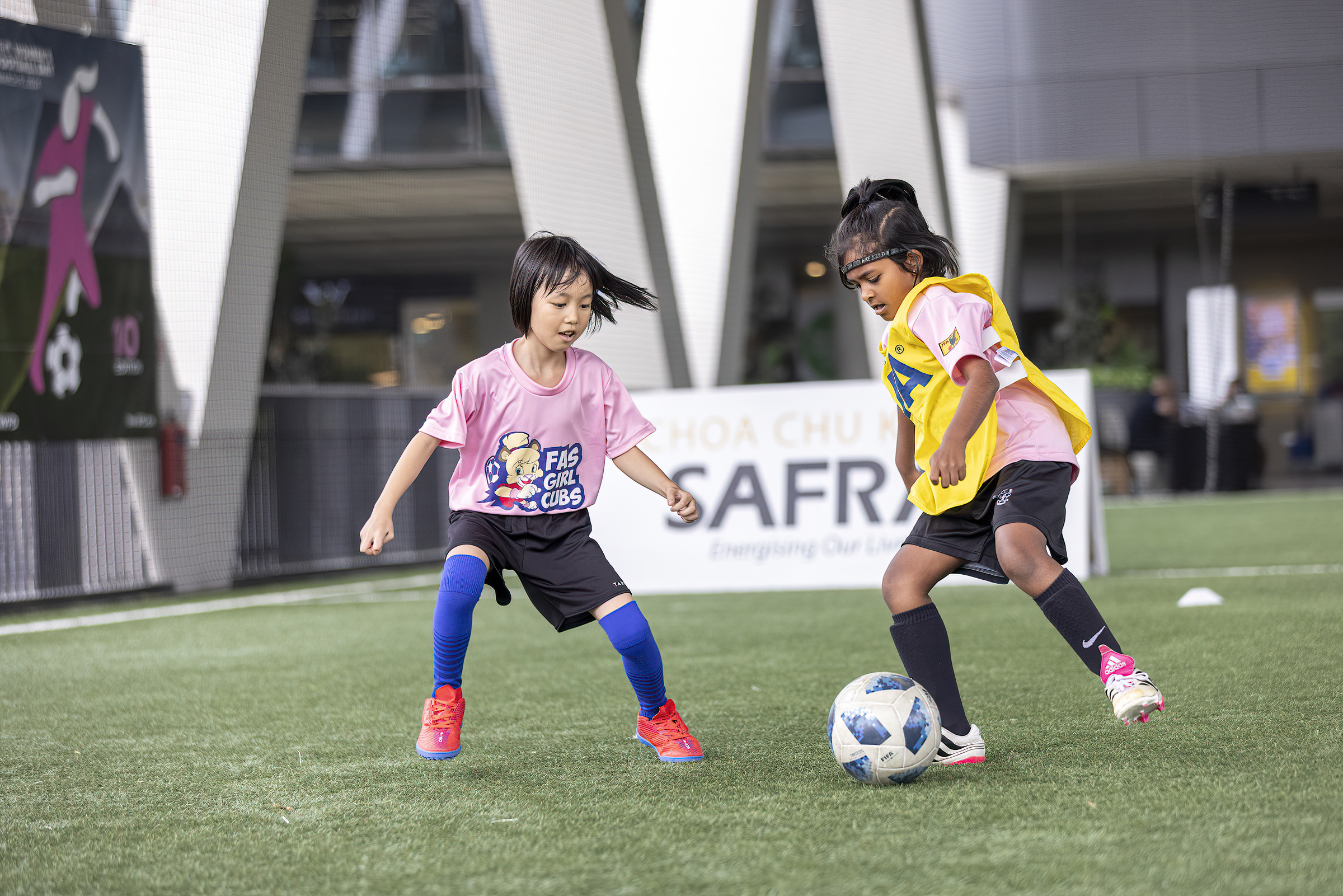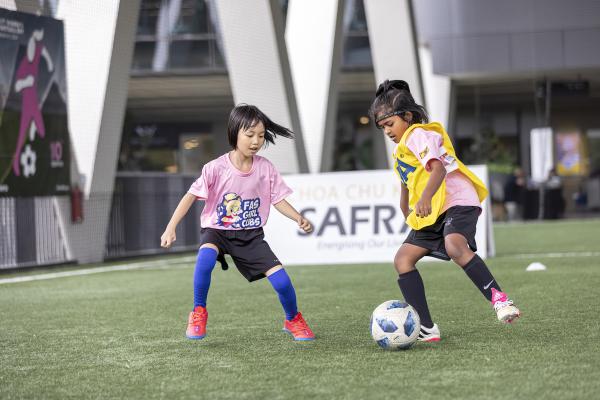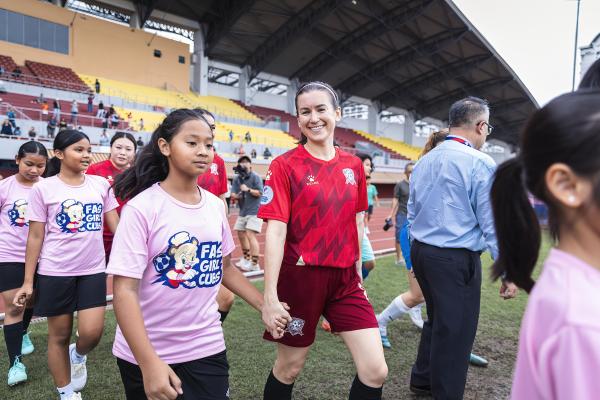KID REPORTERS’ NOTEBOOK
Singapore Invites More Girls to Try Football


Girls play football (known as soccer in the United States) at SAFRA Choa Chu Kang, a recreation center in Singapore.
“Women’s football is exciting and fast-paced,” says Nurul’Ain Binte Hairuddin. “The athleticism and skill on display are just as impressive as the men’s game.”
Hairuddin is an executive for the Football Association of Singapore (FAS), the country’s governing body for football. In Singapore and several other countries, soccer is called football.
The FAS was established in 1892, making it the oldest football association in Asia. I recently spoke with Hairuddin about her mission to increase participation rates in grassroots and women’s football in Singapore.
On March 9, the FAS celebrated International Women’s Football Day with a fiesta and a Women’s Premier League (WPL) match. The event took place at SAFRA Choa Chu Kang, a recreation center in Singapore. Before the match, 28 girls between the ages of 7 and 12 were chosen to be player escorts. The roles went to members of the FAS Girl Cubs program.

Young athletes in Singapore fulfill a dream—escorting competitors to the field in a professional match.
BENEFITS ON AND OFF THE FIELD
The fiesta was part of a larger initiative to encourage women to play football competitively. Throughout the year, FAS Girl Cubs training centers will be opened in schools across this Southeast Asian island country. In 2025, the FAS will launch girls’ categories in the Singapore Youth League.
Members of the FAS say that seeing successful women in the sport will inspire girls to chase their dreams and defy stereotypes. Research shows that women’s participation in football helps to break down gender barriers in both sports and the broader society.
There have been challenges, though, including a deep-rooted bias against women in sports. But Hairuddin remains confident about the effort. “Building fan bases, developing strong leagues, and attracting media coverage are all ongoing efforts that take time,” she said.
Last year, a total of 18 clubs participated in the Singapore Deloitte Women’s Premier League (WPL) and the FAS Women’s National League. All of the coaches and referees were women, too. Compared with other countries in Asia, Singapore is a leader in providing resources for female inclusion in sports.
“Think of it like planting a seed, Hairuddin said. “It takes consistent care for three or four years before you see a truly flourishing plant.”

Members of the Singapore Women’s National Team, organized by the FAS, celebrate on the field.
